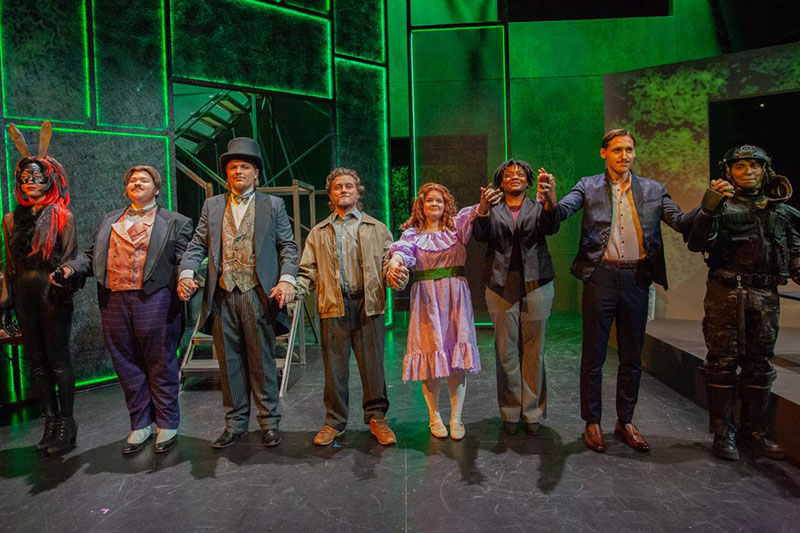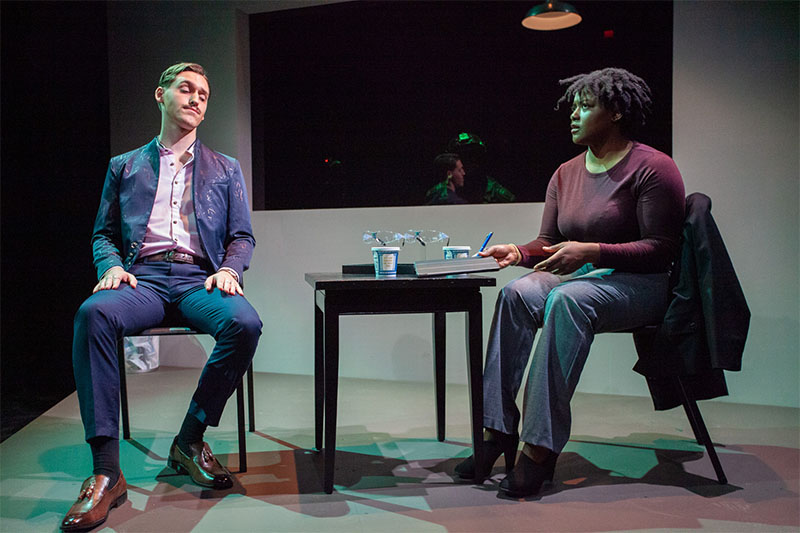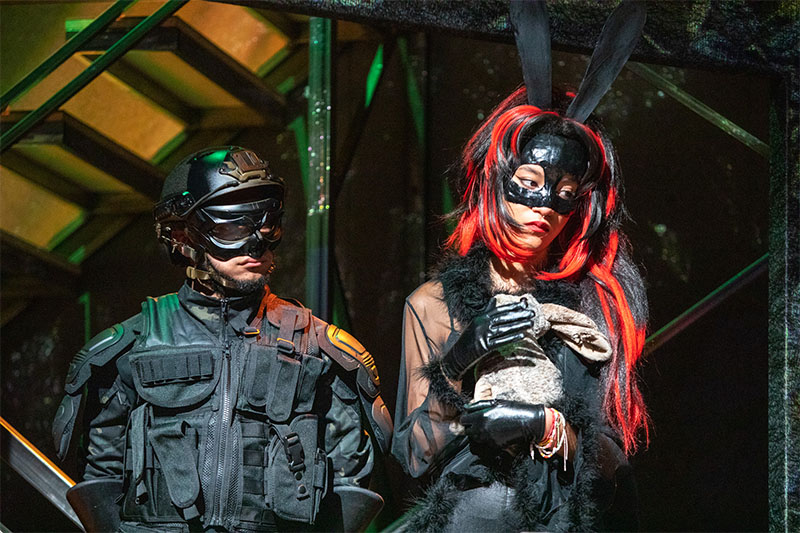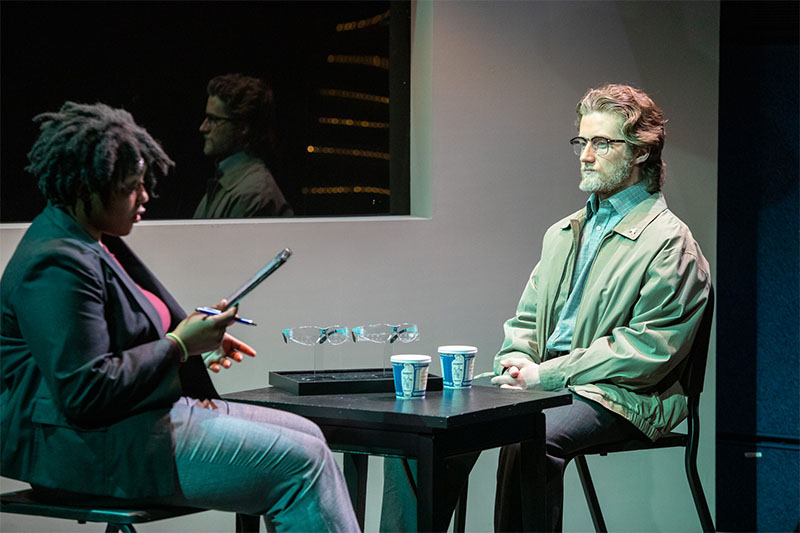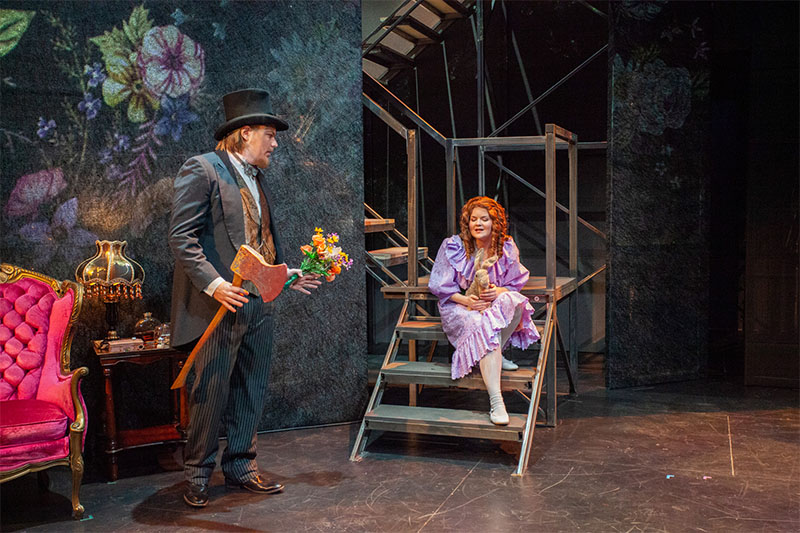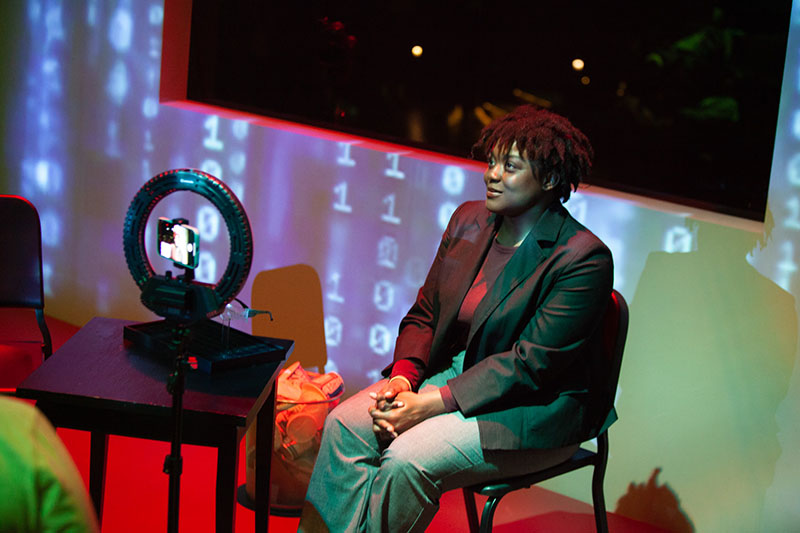- Apply
- Visit
- Request Info
- Give
Eastern theatre program presents ‘The Nether’ and faculty talk
Written by Noel Teter
Published on March 07, 2023
Last week, Jennifer Haley’s 2012 play “The Nether” opened at Eastern Connecticut State University’s DelMonte Bernstein Studio Theater, directed by Kristen Morgan, professor of theatre.
The cast featured Millie Carlson as Papa, Joy Ikechukwu as Morris, Xsyanni Jackson and Wesley Silva as Shades, Emma Reilly as Iris, Adam Rodowicz as Doyle, Tyler Warren as Woodnut and Kane Waggoner as Sims.
“We were supposed to open Tuesday night, but COVID had other plans,” said Morgan when addressing the audience before the play began.
The title of the play is derived from definitions of “The Nether” found on urbandictionary.com, most notably “a dimension of evil or imagination.” Such evil in the play is found in Sims, the main character, who is a pedophile and hosts an online server called the Hideaway in which pedophiles can indulge their desires without consequence. His name in the Hideaway is Papa.
The play’s scenes alternate between an interrogation room and the Hideaway. Sims is interrogated by Morris, a young detective who herself discovered the Hideaway and decided to investigate this disturbing form of entertainment. Morris also interrogates Doyle, her agent who is a science teacher and has spent years going to the Hideaway.
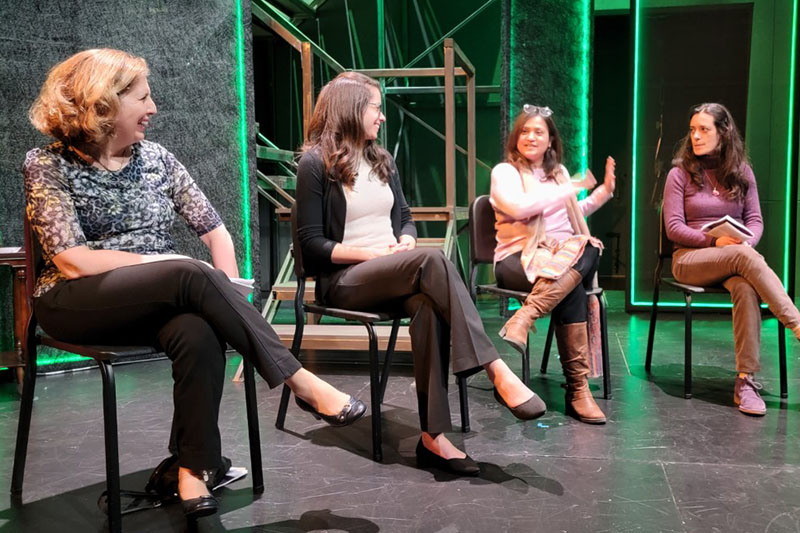
In the Hideaway, Papa is the guardian of many nine-year-old girls who all look the same. Guests are allowed to get a room with a girl, act on their deviant urges, and stop short of forming an emotional connection with them. When the girls start to feel real love for guests or Papa, he sends them to a boarding school.
The girl featured throughout the play is Iris, who appears as an exception to Papa’s rules when she makes real connections with Papa and Woodnut. Iris is also the online persona of a real-world character in the play, the identity of whom is a surprise to many.
After the play concluded, there was a discussion between faculty, cast and audience called the “Talk Back.” This discussion was headed by Professor Miriam Chirico of the English Department and featured professors Sukeshini Grandhi of management and marketing, Ana Funes Maderey of philosophy and Jenna Scisco of psychology.
Grandhi, who specializes in research on how technology optimizes human experience, asked a thought-provoking question: “Should we even be designing technology this way to engage in our deviant behaviors?”
She also touched upon the issue of privacy on the Internet and how it can only be achieved through providing personal information: “To be private, you have to have authentication, and that is the paradox of the Internet.”
Scisco, meanwhile, specializes in how human behavior changes when interacting with a digital realm. She stated that people are “more likely to engage in deviant behavior online” than in the real world, on the premise that “no one is going to know it was me.”

Looking at the plot of “The Nether” through a philosophical lens, Funes Maderey looked at issues of morality in the misconception that one can live without consequences. “Our humanity will show up anyway,” she said.
She also dispelled the notion that actions taken online are not real, equating what is real with “that which is the effect of a cause.” She stated that this misconception reflects “how deluded we are already in many of our current interactions with the world.”
Following these comments from faculty was a direct question-and-answer session between audience and cast. Waggoner addressed the difficulty of playing the role of a pedophile.
“It’s probably the most difficult ethically,” he said, relating Sims to other roles he has played. He was excited for the challenge of playing a morally twisted character. He knew that he must detach his morals from his acting. “I basically recited my lines until they lost meaning,” he said.
Ikechukwu said that she felt sick to her stomach as she became familiar with the plot. “There was so much cognitive dissonance going on,” she said.
Rodowicz, meanwhile, said that the most disturbing scene for him involved an interaction between Iris and Papa that took place through the voices of their real-world characters. “If you never saw that person, would you interact with the person in the same way?” he asked the audience.
The main takeaway from the play and the talk was the idea that all human actions, even online, have consequences.



